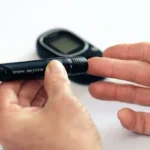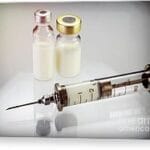Plasma donation is a life-saving process, but if you have Type 1 Diabetes (T1D), you might wonder whether you’re eligible to donate. The perfect answer is: Yes, but with conditions. Your eligibility depends on how well you manage your diabetes, your overall health, and the donation center’s policies.
This guide explains everything you need to know about donating plasma with Type 1 Diabetes in a simple and engaging way.
What is Plasma Donation?
The liquid part of blood that contains platelets, white blood cells, and red blood cells is called plasma. It contains proteins, antibodies, and clotting factors that are crucial for treating various medical conditions, including:
✔️ Burn victims
✔️ Immunodeficiencies
✔️ Hemophilia
✔️ Trauma patients
Plasma donation process:
Blood is drawn from your body, plasma is separated, and the remaining components are returned to your bloodstream.
Plasma is rich in proteins and antibodies and is crucial in creating life-saving treatments for patients with immune deficiencies, clotting disorders, severe burns, and other critical conditions.
How Plasma Donation Works
- Screening Process – A medical assessment, including a health questionnaire and blood tests, ensures donor eligibility.
- Plasmapheresis Procedure – Blood is drawn, plasma is separated, and the remaining components are returned to the body.
- Post-Donation Recovery – Hydration and rest are recommended to replenish fluid loss.
Can Diabetics Donate Plasma?
Yes, people with diabetes can donate plasma, provided they maintain good blood sugar control. However, fluctuating glucose levels can create risks, making it essential for donors to demonstrate stability.
Why Can’t Some Diabetics Donate Plasma?
Not all Type 1 diabetics are eligible to donate plasma due to potential health risks. Common reasons include:
❌ Severe Blood Sugar Instability – If prone to hypoglycemia or hyperglycemia episodes.
❌ Recent Insulin or Medication Changes – Adjustments can temporarily disqualify you.
❌ Diabetes-Related Complications – Issues with heart, kidneys, or vision may prevent donation.
❌ Infections or Chronic Conditions – Those with HIV, Hepatitis B/C, or other infections are ineligible.
Each case is evaluated individually. If your diabetes is well-managed, you may still be allowed to donate!

Plasma Donation Eligibility for Type 1 Diabetics
To qualify for plasma donation, an individual must meet the following requirements:
- Be at least 18 years old
- Weigh at least 110 lbs (50 kg)
- Have stable blood sugar levels
- Maintain good overall health
- Provide a valid photo ID
Diabetes-Specific Considerations
- Medication Stability: Donors using insulin or oral medications must demonstrate a consistent regimen.
- No Recent Severe Fluctuations: Frequent hypoglycemia or hyperglycemia can pose risks.
No Diabetes-Related Complications: Issues such as neuropathy, retinopathy, nephropathy, or cardiovascular problems may disqualify a donor.
Why Some Diabetics Are Not Eligible?
Unstable Blood Sugar: Frequent hypoglycemia (low blood sugar) or hyperglycemia (high blood sugar) can cause health risks during donation.
Recent Medication Changes: If your insulin or oral medication dosage has changed recently, you may be ineligible.
Diabetes-Related Complications: Issues like diabetic retinopathy, nephropathy (kidney disease), or cardiovascular problems can disqualify you.
Use of Certain Insulins: Some centers restrict donors using insulin derived from bovine (cow) sources due to concerns about Creutzfeldt-Jakob disease.
Plasma Donation Eligibility: Type 1 vs. Type 2 Diabetes
| Factor | Type 1 Diabetes | Type 2 Diabetes | |||
| Medication Use | Requires insulin for glucose regulation | May use oral medications, insulin, or lifestyle changes | |||
| Fluctuation Risk | Higher risk of blood sugar instability | More likely to have stable blood sugar | |||
| Donation Restrictions | Stricter due to insulin dependence | Fewer restrictions if glucose is controlled | |||
🔹 Key Takeaway: Type 1 diabetics must demonstrate tighter blood sugar control to be eligible for plasma donation.
The Impact of Plasma Donation on Blood Sugar
Plasma donation involves removing fluid from the bloodstream, which may affect blood sugar levels.
- Short-term effects: Possible temporary drop in blood sugar.
- Long-term effects: A 2016 study suggested blood donation may improve glucose metabolism in certain individuals.
- Precaution: Diabetics should monitor blood sugar before and after donation to prevent complications.
Chart: Blood Sugar Variations Before and After Plasma Donation
| Time Period | Expected Blood Sugar Changes |
| Before Donation | Blood sugar levels should be stable |
| During Donation | Slight fluctuations may occur due to fluid loss |
| Immediately After | Possible minor drop in glucose levels |
| 1-2 Hours After | Blood sugar stabilizes with proper hydration and food intake |
Potential Risks & Precautions for Diabetic Donors
Risk of Low Blood Sugar (Hypoglycemia): Plasma donation can temporarily lower blood sugar. Eat a balanced meal before donating.
Fatigue & Dizziness: Stay hydrated and rest well before and after donation.
Dehydration: Plasma contains water and electrolytes, so drink plenty of fluids post-donation.
Impact on Blood Pressure: Monitor any unusual symptoms like weakness or lightheadedness.
💡 Expert Tip: Carry a snack (like fruit or protein bars) to eat after donating plasma.
How to Minimize Risks:
✅ Eat a balanced meal with protein and complex carbs before donating.
✅ Drink plenty of fluids before and after donation.
✅ Monitor blood sugar levels before and after the procedure.
✅ Avoid strenuous activities post-donation.

Practical Advice for Diabetic Donors
If you have Type 1 diabetes and want to donate plasma, preparation is key.
Before Donation:
🔹 Monitor Blood Sugar: Ensure it’s stable and within the normal range.
🔹 Eat a Balanced Meal: Prevents low blood sugar during and after donation.
🔹 Stay Hydrated: Plasma loss can cause dehydration.
🔹 Avoid Alcohol & Caffeine: These can affect blood sugar control.
During Donation:
🩸 Inform Staff About Your Diabetes: They can monitor your condition.
🩸 Bring a Snack: Helps maintain blood sugar stability.
🩸 Rest and Relax: Don’t rush after donation; take your time.
After Donation:
✔ Drink More Fluids – Helps restore plasma levels.
✔ Monitor Your Blood Sugar – Check for any fluctuations.
✔ Rest for a Few Hours – Avoid intense physical activities.
Case Studies: Plasma Donation with Diabetes
Case 1: John, 35, Type 1 Diabetic
- Background: Diagnosed with Type 1 diabetes at 20, insulin-dependent.
- Challenge: Concern about blood sugar fluctuations.
- Outcome: Successfully donated plasma after ensuring stable glucose levels before and after donation.
Case 2: Sarah, 42, Type 2 Diabetic
- Background: Type 2 diabetic, controlled with diet and oral medication.
- Challenge: Worried about dehydration.
- Outcome: Safely donated plasma by hydrating adequately and consuming a high-protein meal beforehand.
Case 3: Alex, 50, Diabetic with Mild Neuropathy
- Background: Type 2 diabetic for 15 years, mild neuropathy but no severe complications.
- Challenge: Concerned about eligibility due to nerve damage.
- Outcome: Was not eligible due to neuropathy, emphasizing the need for full medical screening.
FAQs: Diabetes & Plasma Donation
1. Can I donate plasma if I take insulin?
Yes, but your diabetes must be well-managed, and you must meet all other eligibility criteria.
2. Will donating plasma affect my blood sugar?
Yes, it may cause slight fluctuations, but eating a balanced meal and staying hydrated can help maintain stable levels.
3. Are there donation centers that allow diabetics to donate plasma?
Yes, but each center has its own policies. Always check with the center beforehand.
4. Can donating plasma improve my glucose control?
More research is required, but some studies point to possible advantages.
5. Can diabetics donate platelets?
Yes, if they meet the eligibility requirements and their condition is well-controlled.
6. What should I eat before donating plasma as a diabetic?
Consume a balanced meal with proteins, complex carbohydrates, and healthy fats to maintain stable glucose levels.
7. Can plasma donation cause long-term complications for diabetics?
If proper precautions are taken, plasma donation does not cause long-term issues. However, those with diabetes-related complications should consult their doctor.
8. Does donating plasma increase the risk of diabetic ketoacidosis (DKA)?
For well-controlled diabetics, there is no significant risk of DKA. However, individuals with poor glucose control should avoid donating.
9. Can I donate plasma if I have diabetes complications?
If you have severe diabetes-related complications (e.g., kidney disease, cardiovascular issues), you may not be eligible.
10. How often can I donate plasma?
Most centers allow donations twice a week with at least 48 hours between donations.
11. Does donating plasma improve diabetes?
Some studies suggest that plasma donation might lower iron levels, which could slightly improve glucose tolerance in some individuals.
12. Are there any donation centers that accept insulin users?
Many do, but rules vary. Call ahead to check eligibility.
13. Can diabetics donate plasma twice a week?
Most centers allow two donations per week, with at least 48 hours between sessions. However, diabetics should monitor their health before frequent donations.
14. What happens to blood sugar after donating blood?
A 2016 study found that in some cases, males who donated blood experienced improved glucose tolerance within 3 weeks, suggesting blood donation might positively impact certain markers related to diabetes.
15. Can you donate blood if you take metformin?
A person living with diabetes who takes metformin or similar oral medications like Fortamet or Glumetza can still donate blood, as these drugs help control blood sugar without affecting the insulin required for eligibility.
16. Can a person living with diabetes donate blood plasma?
People with diabetes can often donate blood plasma, which contains proteins, antibodies, and supports clotting and immunity, but must meet specific donation requirements and confirm eligibility at their
Conclusion
Plasma donation can be a life-saving contribution, but individuals with diabetes must carefully manage their condition and consult healthcare providers before donating. By maintaining stable glucose levels, following precautions, and understanding eligibility criteria, diabetic donors can safely participate in plasma donation and make a meaningful difference in healthcare

Dr. Hamza is a medical content reviewer with over 12 years of experience in healthcare research and patient education. He specializes in evidence-based health information, medications, and chronic disease management. His reviews are based on trusted medical sources and current clinical guidelines to ensure accuracy, transparency, and reliability. All content reviewed by Dr. Hamza is intended for educational purposes only and should not be considered a substitute for professional medical advice










